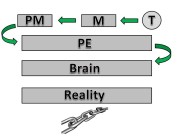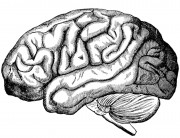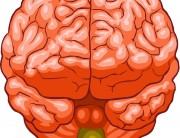Here are the answers to some common questions:
What’s the difference between ADHD and ADD
There is no difference. ADHD is divided into three types: Inattentive, Hyperactive/Impulsive, and Combined. ADD is the Inattentive type. When it comes to diagnosis, the official label is ADHD. This confusion is probably responsible for many missed cases of ADHD.
How do I know if I have it?
Psychiatrists or psychologists are the only mental health professionals qualified to diagnose ADHD. If you have concerns, make arrangements to see one of these individuals. The diagnostic criteria for ADHD are as follows:
A. Either (1) or (2)
1) Six or more of the following symptoms of inattention have persisted for at least six months to a degree that is maladaptive and inconsistent with the developmental level:
Inattention
- often fails to give close attention to details or makes careless mistakes in schoolwork, work, or other activities
- often has difficulty sustaining attention in tasks or play activities
- often does not seem to listen when spoken to directly
- often does not follow through on instructions and fails to finish schoolwork, chores, or duties in the workplace (not due to oppositional behaviour or failure of comprehension)
- often has difficulty organizing tasks and activities
- often avoids, dislikes, or is reluctant to engage in tasks that require sustained mental effort (such as schoolwork or homework)
- often loses things necessary for tasks or activites at school or at home (e.g. toys, pencils, books, assignments)
- is often easily distracted by extraneous stimuli
- if often forgetful in daily activities
2) Six or more of the following symptoms of hyperactivity-impulsivity have persisted for at least 6 months to a degree that is maladaptive and inconsistent with the developmental level:
Hyperactivity
- often fidgets with hands or feet or squirms in seat
- often leaves seat in classroom or in other situations in which remaining seated is expected
- often runs about or climbs excessively in situations in which it is inappropriate (in adolescents or adults, may be limited to subjective feelings of restlessness)
- often has difficulty playing or engaging in leisure activities quietly
- often talks excessively
- is often ‘on the go’ or often acts as if ‘driven by a motor’
Impulsivity
- often has difficulty awaiting turn in games or group situations
- often blurts out answers to questions before they have been completed
- often interrupts or intrudes on others, e.g. butts into other children’s games
Doesn’t everybody have that?
Everyone will exhibit some degree of some of these symptoms from time to time. When these symptoms become chronic and cause problems in your work, school, relationships, or subjective quality of life, it is worth looking into.
Are they going to put me on medication?
The doctor cannot force you to take medication. Responsible mental health professionals will present a variety of options for treatment, including medication, skills training, mindfulness or self-awareness training, as well as organizational strategies. Research has found that the combination of these approaches is the most effective in the majority of cases.
Will medication cure me?
Medications are designed to increase your ability to focus and pay attention. However the vast majority of people with problematic symptoms of ADHD have developed, over many years, coping patterns to deal with life. These coping patterns or habits may not suddenly change simply by taking a medication. New habits need to be developed and repeatedly practiced over time.
Furthermore, ADHD medications are designed to bring you within the normal range of human functioning, specifically in the areas of attention and focus. They are not designed to reduce anxiety, depression, or address other mental health issues. Sometimes this occurs when ADHD symptoms are the cause of anxiety and depression but this is not the intended use of the medication. As stated above, combining medication with skill-building and creating new behavioural habits is the best way to treat ADHD, according to published research.
Will I always have to take medication?
This is impossible to say for any individual. There are so many factors that create ADHD, including genetics, your environment, your diet, your sleep habits, your social network, your job, your living arrangements, and most likely several other influences that we don’t know about yet. Research tells us that how individuals respond to medication is entirely unique to each individual. Sometimes medication may remain beneficial for the long-term. Sometimes it is only required until skill development is sufficient. Only time will tell.
If I do well in school and/or work doesn’t that mean I don’t have ADHD?
This is not necessarily the case. ADHD can be a double-edged sword. It provides a great deal of energy and the ability to hyper-focus on projects that are interesting but it may negatively impact personal relationships and our own health if we lack the ability to turn off the motor that drives us to such success. There are many successful people, well known throughout history, who have displayed signs and experienced symptoms of ADHD.
Where does it come from?
As stated above, there are many possible influences on the development of ADHD. The most consistent evidence seems to point to the influence of the early environment, particularly attachment relationships with caregivers or other significant figures. Poor early relationships, stressful family environment, and pre-natal stress to the mother have all been linked to the development of ADHD.
Is it Genetic?
A small part of ADHD is attributed to genetics, or DNA. A large part is due to the environment of the developing child, in particular the social environment. What is often seen to be genetic, may in fact be congenital. Congenital refers to conditions that are in place from birth. In many cases, prenatal stress on the part of the mother can be a strong predictor of later ADHD and other impulse control problems. Since the mother and child share a blood supply throughout gestation, the mother’s stress level impacts the development of brain structures that regulate the brain functions most impacted by ADHD.
If you want to learn more about ADHD and your life, or the life of someone you care about, send me an email at ted@connectivitycounselling.com or give me a call at 604-300-2633. You can also find me on Twitter at @CounselorTed


















































Recent Comments